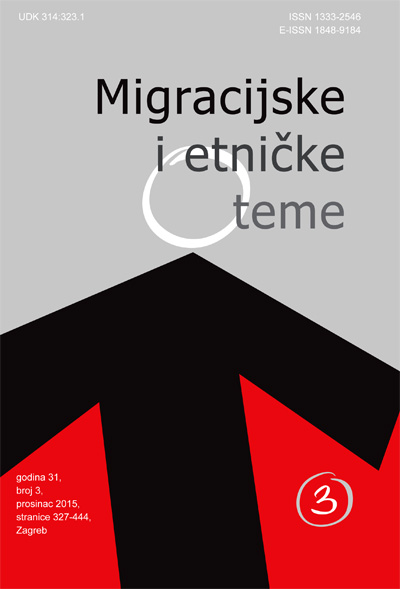Islam, islamofobija i Zapad: suprotstavljeni pogledi i društvena stvarnost
Islam, Islamophobia and the West: Opposing Views and Social Reality
Author(s): Adila Pavelić, Jadranka Čačić KumpesSubject(s): Social Sciences, Sociology, Theology and Religion, Islam studies, Migration Studies, Inter-Ethnic Relations, Ethnic Minorities Studies
Published by: Institut za migracije i narodnosti
Keywords: Islam; the West; Europe; immigration; Islamophobia
Summary/Abstract: Through reviewing different and often opposing views on the relationship between Islam and the West, the paper aims to offer a better understanding of this relationship, and of Islamophobia as an old, yet increasingly actual and in many respects relevant social problem. A short historical overview of the understanding of the relationship between Islam and the West, and various definitions of Islamophobia, are followed by examination of some recent works that from different perspectives deal with the issue. Firstly, is given insight into the works written by Western theorists who describe the relationship between Islam and the West within the framework of the idea of the clash of civilizations while, at the same time, labeling Islam often as a non-modern religion and culture whose members reject Western values such as democracy, freedom and gender equality. In contrast to them are introduced the authors whose argumentation opposes stereotypical views of Islam; among them are also those that critically address Islamophobia in today’s Western society, either by presenting results of their research on Islamophobia or by documenting the dominant media image of Islam, which has been perpetuating stereotypes, especially in the aftermath of the terrorist attacks on New York in 2001. Lastly, it is concluded that, regardless of the origin of works dealing with the relationship between Islam and the West or of the type of their arguments, they more often than not interpret Islam and the West primarily as two separate, self-contained and in itself incompatible worlds. In doing so, the authors here argue, they employ an essentialist and reductionist approach not only to Islam – as it might be assumed – but also to the West, while the relationship between Islam and the West is simplified and schematized.
Journal: Migracijske i etničke teme
- Issue Year: 2015
- Issue No: 3
- Page Range: 407-427
- Page Count: 21
- Language: Croatian

